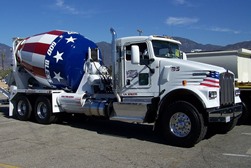How to Find the Best CDL Driving School near Fayetteville Arkansas
 Congratulations on your decision to become a trucker and enroll in a truck driving school near Fayetteville AR. Perhaps it has always been your ambition to hit the open highway while operating a huge tractor trailer. Or maybe you have done some research and have found that an occupation as a truck driver provides excellent wages and flexible job prospects. No matter what your reason is, it's important to get the appropriate training by choosing the right CDL school in your area. When evaluating your options, there are certain variables that you'll want to examine prior to making your final selection. Location will no doubt be important, especially if you have to commute from your Fayetteville residence. The cost will also be important, but picking a school based only on price is not the best means to make sure you'll get the proper education. Don't forget, your objective is to learn the knowledge and skills that will allow you to pass the CDL examinations and become a professional truck driver. So keeping that objective in mind, just how do you decide on a truck driving school? The answer to that question is what we are going to discuss in the balance of this article. But first, we are going to discuss a little bit about which CDL license you will ultimately need.
Congratulations on your decision to become a trucker and enroll in a truck driving school near Fayetteville AR. Perhaps it has always been your ambition to hit the open highway while operating a huge tractor trailer. Or maybe you have done some research and have found that an occupation as a truck driver provides excellent wages and flexible job prospects. No matter what your reason is, it's important to get the appropriate training by choosing the right CDL school in your area. When evaluating your options, there are certain variables that you'll want to examine prior to making your final selection. Location will no doubt be important, especially if you have to commute from your Fayetteville residence. The cost will also be important, but picking a school based only on price is not the best means to make sure you'll get the proper education. Don't forget, your objective is to learn the knowledge and skills that will allow you to pass the CDL examinations and become a professional truck driver. So keeping that objective in mind, just how do you decide on a truck driving school? The answer to that question is what we are going to discuss in the balance of this article. But first, we are going to discuss a little bit about which CDL license you will ultimately need.
Which Commercial Drivers License Will You Need?

In order to operate commercial vehicles lawfully within the United States and Fayetteville AR, an operator must get a CDL (Commercial Driver's License). The 3 classes of licenses that one can qualify for are Class A, Class B and Class C. Since the topic of this article is how to choose a truck driver school, we will highlight Class A and Class B licenses. What distinguishes each class of CDL is the type of vehicle that the driver can operate together with the GVWR (Gross Vehicle Weight Rating) or GCWR (Gross Combination Weight Rating). Below are brief descriptions of the 2 classes.
Class A CDL. A Class A CDL is needed to operate any vehicle that has a GCWR of more than 26,000 lbs., including a towed vehicle of more than 10,000 lbs. Several of the vehicles that operators may be able to drive with Class A licenses are:
- Interstate or Intrastate Tractor Trailers
- Trucks with Double or Triple Trailers
- Tanker Trucks
- Livestock Carriers
- Class B and Class C Vehicles
Class B CDL. A Class B CDL is required to drive single vehicles having a GVWR of more than 26,000 lbs., or a GCWR of more than 26,000 lbs. including a towed vehicle weighing up to 10,000 lbs. Some of the vehicles that drivers may be qualified to operate with Class B licenses are:
- Tractor Trailers
- Dump Trucks
- Cement Mixers
- Large Buses
- Class C Vehicles
Both Class A and Class B CDLs might also require endorsements to drive specific kinds of vehicles, such as passenger or school buses. And a Class A license holder, with the appropriate required endorsements, can drive any vehicle that a Class B licensee is qualified to drive.
How to Research a CDL School

When you have decided which Commercial Drivers License you want to pursue, you can start the process of assessing the Fayetteville AR truck driving schools that you are looking at. As earlier discussed, cost and location will certainly be your primary considerations. But it can't be emphasized enough that they should not be your only considerations. Other issues, including the reputations of the schools or the experience of the instructors are similarly if not more important. So following are some more things that you need to research while conducting your due diligence prior to choosing, and especially paying for, your truck driving training.
Are the Schools Accredited or Certified ? Not many trucking schools in the Fayetteville AR area are accredited due to the stringent process and expense to the schools. On the other hand, certification is more common and is offered by the Professional Truck Driver Institute (PTDI). A school is not obligated to become certified, but there are a number of advantages. Prospective students recognize that the training will be of the highest caliber, and that they will be given plenty of driving time. As an example, PTDI mandates 44 hours of real driving time, not simulations or ride-alongs. So if a school's course is certified (the course, not the school is certified), students know that the training and curriculum will meet the very high standards set by PTDI.
How Long in Business? One indicator to help measure the quality of a truck driving school is how long it has been in business. A negatively rated or a fly by night school usually will not stay in business very long, so longevity is a plus. Having said that, even the best of Fayetteville AR schools had to start from their first day of training, so consider it as one of several qualifiers. You can also learn what the school's track record is relating to successful licensing and job placement of its graduating students. If a school won't share those stats, search elsewhere. The schools should additionally have relationships with regional and national trucking firms. Having numerous contacts not only points to a superior reputation within the profession, but also boosts their job assistance program for graduates. It also wouldn't hurt to get in touch with the Arkansas licensing authority to verify that the CDL trucker schools you are considering are in good standing.
How Effective is the Training? At a minimum, the schools should be licensed in Arkansas and employ teachers that are trained and experienced. We will discuss more about the instructors in the next section. In addition, the student to instructor ratio should not be higher than 4 to 1. If it's any greater, then students will not be receiving the personalized attention they will need. This is especially true concerning the one-on-one instruction for behind the wheel training. And look out for any school that claims it can teach you to drive trucks in a comparatively short period of time. Training to be a truck driver and to drive a tractor trailer professionally requires time. The majority of Fayetteville AR schools provide training courses that range from three weeks to as long as two months, based on the class of license or type of vehicle.
How Experienced are the Teachers? As earlier stated, it's imperative that the instructors are qualified to teach driving methods and experienced as both instructors and drivers. Although a number of states have minimum driving time requirements to qualify as an instructor, the more successful driving experience a teacher has the better. It's also important that the instructors keep current with industry developments or any new regulations or changes in existing laws. Evaluating instructors might be a bit more intuitive than other criteria, and possibly the best approach is to check out the school and talk to the instructors face to face. You can also talk to a few of the students going through the training and find out if they are happy with the level of instruction and the teacher's qualification to train them.
Adequate Driving Time? Above all else, a great truck driving school will furnish ample driving time to its students. After all, isn't that what it's all about? Driving time is the real time spent behind the wheel driving a truck. While the use of simulators and ride-a-longs with other students are important training methods, they are no alternative for real driving. The more training that a student receives behind the wheel, the better driver he or she will be. Although driving time differs among schools, a reasonable standard is 32 hours at a minimum. If the school is PTDI certified, it will provide at least 44 hours of driving time. Check with the Fayetteville AR schools you are looking at and ask how much driving time they provide.
Are they Captive or Independent ? You can receive discounted or even free training from certain truck driving schools if you make a commitment to be a driver for a particular carrier for a defined amount of time. This is referred to as contract training, and the schools that provide it are called captives. So rather than maintaining affiliations with numerous trucking lines that they can refer their students to, captives only work with one company. The benefit is receiving less expensive or even free training by giving up the flexibility to initially be a driver wherever you choose. Naturally contract training has the potential to reduce your income opportunities when starting out. But for some it may be the only way to obtain affordable training. Just remember to inquire if the Fayetteville AR schools you are looking at are independent or captive so that you can make an informed decision.
Offer Onsite CDL Testing? There are some states that will allow 3rd party CDL testing onsite of trucking schools for its grads. If onsite testing is permitted in Arkansas, find out if the schools you are looking at are DMV certified to provide it. One advantage is that it is more convenient than competing with graduates from competing schools for test times at Arkansas testing locations. It is also an indication that the DMV believes the authorized schools to be of a higher quality.
Are the Classes Convenient? As previously mentioned, truck driving training is only about 1 to 2 months in length. With such a short term, it's important that the Fayetteville AR school you enroll in offers flexibility for both the scheduling of classes and the curriculum. As an example, if you're having a hard time learning a certain driving maneuver, then the teacher should be willing to spend more time with you until you have it mastered. And if you're still holding a job while attending training, then the class scheduling needs to be flexible enough to accommodate working hours or other commitments.
Is Job Assistance Provided? As soon as you have received your CDL license after graduating from truck driving school, you will be eager to start your new profession. Verify that the schools you are reviewing have job placement programs. Find out what their job placement ratio is and what average salary their grads start at. Also, find out which national and local trucking companies their graduates are placed with for employment. If a school has a poor job placement rate or not many Fayetteville AR employers hiring their grads, it may be a sign to search elsewhere.
Is Financial Assistance Given? Trucking schools are much like colleges and other Fayetteville AR area vocational or trade schools when it comes to loans and other forms of financial assistance being offered. Find out if the schools you are assessing have a financial assistance department, or at a minimum someone who can help you understand the options and forms that must be submitted.
Learn More About Fayetteville Trucker Schools
Enroll in the Best Fayetteville AR Truck Driver Training
Selecting the right truck driver school is an important first step to launching your new occupation as a long distance or local truck driver. The skill sets that you will learn at school will be those that mold a new career behind the wheel. There are a number of options available and understanding them is critical if you are going to succeed as an operator. However, you must obtain the appropriate training in order to operate a big commercial vehicle in a safe and professional manner. If you are short on funds or financing, you may want to look into a captive school. You will pay a lower or even no tuition in exchange for driving for their contracted carrier. Or you can enroll in an independent CDL school and have the option of driving for the trucking company of your choosing, or one of many affiliated with the school. It's your decision. But no matter how you receive your training, you will in the near future be entering an industry that helps America move as a professional trucker in Fayetteville AR.
